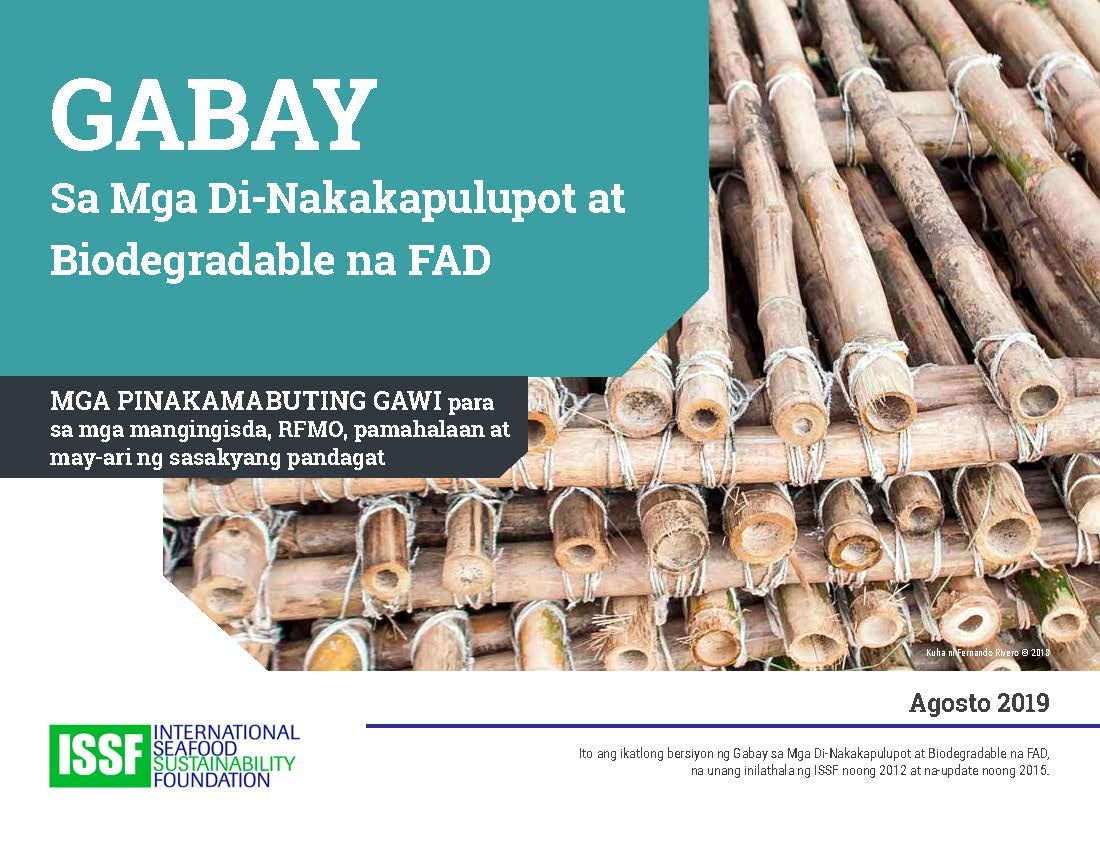Document: Non-Entangling and Biodegradable FADs Guide (Tagalog)
This guide is an August 2019 update and Tagalog translation of the ISSF Guide for Non-entangling FADs, first published in 2012 and last updated in 2015.
We have created this version of the guide for tuna fishers, Regional Fisheries Management Organizations (RFMOs), governments and vessel owners. It shows best practices in Fish Aggregating Device (FAD) design, both to avoid bycatch — especially of sharks and sea turtles — and to reduce marine pollution.
New to this version of the guide is a focus on constructing FADs that are not only non-entangling to bycatch species but also biodegradable. Illustrations (p. 6) show how to design and build non-entangling biodegradable FADs without netting using natural materials. Those guidelines are contrasted with other FAD designs fishers have used that pose some degree of entanglement risk (low to high) to marine species.
The four tuna RFMOs already require fleets that fish with FADs to use only non-entangling designs. Some RFMOs also encourage fleets to use biodegradable materials in those non-entangling FADs.
The guide, which reflects the latest scientific research, was produced with input from ISSF’s Scientific Advisory Committee and Bycatch Steering Committee.
- Best Practices ,
- Biodegradable FADs ,
- Bycatch ,
- Bycatch Mitigation ,
- Ecosystem ,
- FADs ,
- Ghost Fishing ,
- Non-Entangling FADs ,
- RFMOs ,
- science ,
- Sea Turtles ,
- Sharks ,
- Skippers Workshops
Downloads: 373 | Views: 0
